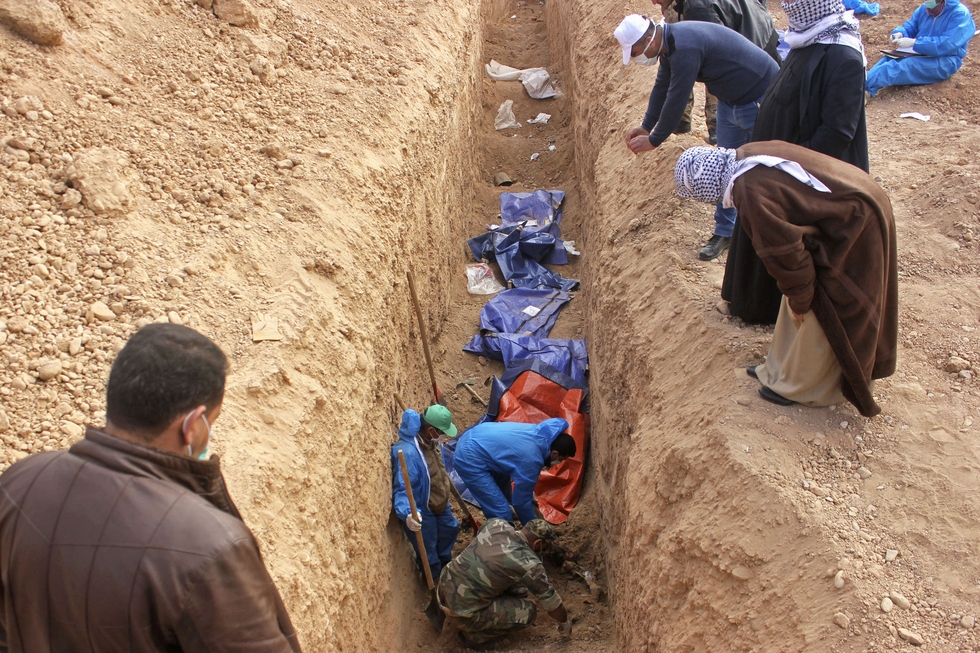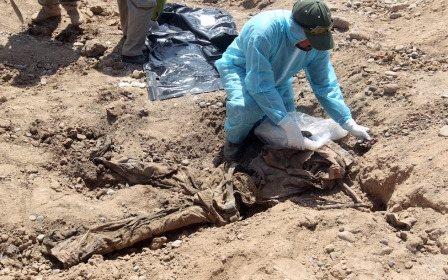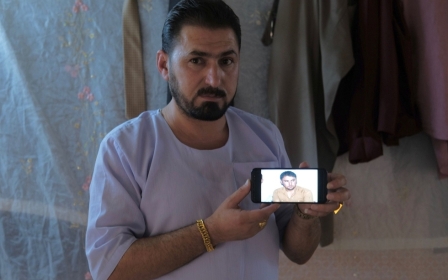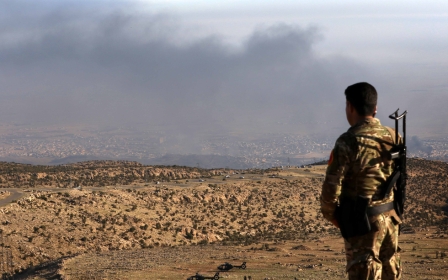Dozens of bodies 'found in Islamic State mass grave' in Iraq

Iraqi authorities say they have uncovered a mass grave containing the remains of dozens of people in an area of northern Kirkuk province once held by Islamic State (IS).
Security forces have discovered hundreds of mass graves since they drove out IS in 2017 after three years of the group's occupation of swathes of northern and western Iraq.
The latest discovery was made on Thursday in the Hawija district of Kirkuk province, Adel Ismail, a lieutenant-colonel in the Iraqi federal police force, told the AFP news agency.
He said the grave contained the remains of "innocent Iraqi civilians" who "were abducted and then killed" by IS.
The grave was found in what appeared to be a deep well in the Al-Abbassi area of Hawija.
"This is a mass grave used by Daesh," said Wani Firas, a resident of the area, using the Arabic-language acronym for IS.
"They used to come here, execute and throw [the victims] inside, and we used to watch and observe from nearby," he said.
'Khasfa sinkhole'
The United Nations in Iraq (UNAMI) and its human rights office said last month they had documented a total of 202 mass graves in parts of western and northern Iraq held by IS between 2014 and 2017.
Of those, just 28 had been excavated and 1,258 bodies exhumed by Iraqi authorities, the report said.
The UN said the graves may contain up to 12,000 victims and could hold vital evidence of war crimes by IS.
The "Khasfa sinkhole" in al‐Khasfa, south of Mosul, discovered on 24 February 2017, is thought to be the largest of the gravesites discovered.
The report said the government believes that up to 4,000 persons were killed and disposed of at the site.
Even more sites could be uncovered in the months to come, the UN warned, urging Iraqi authorities to properly preserve and excavate them to provide closure for victims' families
IS, which has now lost almost all the land it once controlled, has been held responsible for multiple atrocities, including mass executions and decapitations.
Stay informed with MEE's newsletters
Sign up to get the latest alerts, insights and analysis, starting with Turkey Unpacked
Middle East Eye delivers independent and unrivalled coverage and analysis of the Middle East, North Africa and beyond. To learn more about republishing this content and the associated fees, please fill out this form. More about MEE can be found here.




